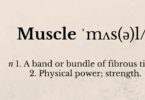There’s a lot of yelling going on in the world at the moment. It’s tough to tell whether this is because the divisions between right/left/conservative/liberal are genuinely getting more pronounced, or just because evolving means of communication are starting to encourage everyone to swear at each other in bite-sized chunks. What’s less arguable is: almost all of it is pointless. Most of it is probably counter-productive. Because whether you’re frenziedly RTing bon mots in the echo chamber of Twitter, or having it out with your racist old schoolfriends on FB, or actually yelling at people from the deck of a boat IRL, you almost certainly aren’t doing anything to change their opinions. If anything, you’re probably reinforcing them.
Let’s start with your brain.
In his book Brain and Culture, professor Bruce Wexler writes that ‘During the first part of life, the brain and mind are highly plastic, require sensory input to grow and develop, and shape themselves to the major recurring features of their environment. By early adulthood, the mind and brain have a diminished ability to change those structures…much of [brain] activity is devoted to making the environment conform to the established structures.’ Or, as Will Storr puts it in the excellent Heretics: ‘By the time you reach adulthood, your brain has decided how the world works: how a table looks and feels, how liquids and authority figures behave, how scary are rats. It had made its mind up…[and] your brain is surprisingly reluctant to change its mind. Rather than going through the difficulties involved in rearranging itself to reflect the truth, it often prefers to fool you. So it distorts. It forgets. It projects. It lies.’
When things contradict our mental models, then, that’s the start of ‘cognitive dissonance’, the mental stress and discomfort experienced by someone who holds two or more contradictory beliefs, ideas, or values at the same time, performs an action that is contradictory to one or more beliefs, ideas, or values, or is confronted by new information that conflicts with existing beliefs, ideas, or values. And, as social psychologists Carol Tavris and Elliot Aronson point out in Mistakes Were Made (But Not By Me) ‘Dissonance produces mental discomfort, ranging from minor pangs to deep anguish; people don’t rest easy until they find a way to reduce it.’ How do they reduce it? According to Tavris and Aronson: ‘Most people, when directly confronted with proof that they are wrong, do not change their view or course of action but justify it even more tenaciously.’
This is the start of confirmation bias, and the ‘makes sense stopping’ rule, where people make up their minds about their views almost instantly and then only pay attention to evidence that supports their existing views. Plenty of studies suggest that your brain is happy to forget things it considers contradictory to your mental models – but it gets worse, because evidence suggests that exposure to the opposite side of any argument can make us even more biased to our own beliefs. In this 2004 study, for instance, researchers took 30 Republican/Democrat voters and showed them slides making it obvious that John Kerry and George Bush showed clear inconsistencies between their words and actions. As you’d expect by this point in this article, the participants had no trouble seeing the contradictions in the opposition candidate’s speech, but tended to rate their own candidate as much more consistent. But the researchers also took brain scans, and found something (mildly) terrifying: ‘Once participants found a way to reason to false conclusions, not only did neural circuits involved in negative emotions turn off, but circuits involved in positive emotions turned on.’ Basically, whenever you delude yourself, you get a nice neurochemical jolt reinforcing it. Everything in our brains is designed to make us believe that we’re smarter, more moral, and more capable than is true: and it wants us to feel good about it.
This, of course, is why ‘taking someone down’ on Twitter, Facebook, or a popular TV show basically never works.
People don’t like being yelled at, or told they’re stupid, or made to feel like they’re stupid. You know this already.
So how do you fix it?
Socrates was on the right lines, but let’s be honest: in The Republic, he comes across as kind of a dick. At the other end of the timescale, earlier this year researchers did a whole load of analysis on years’ worth of argument on Reddit.com’s ChangeMyView sub-reddit (where people go to , and found (among other things) that using calmer language and hedging (“It might be the case”) rather than assertive phrases seems to work. This is all very nice, and on the right lines, but here’s my favourite option:
Make it their idea
In his book, The Education of an Accidental CEO, David Novak makes the point that very few advertisements tell people explicitly to do anything. They present information that leads customers to come up with the idea of buying their product on their own. Nike, for instance, uses minimal language in its commercials, and they definitely don’t go ‘Buy our shoes’. Instead, they fill the screen with images of professional athletes doing their thing while wearing Nike, and let the customer do all the mental processing themselves. Salespeople do a similar thing: reframing the problem so that their customer doesn’t feel like they’ve changed their mind, but come to an entirely new solution on their own. See if this sounds like your last experience buying a computer/car/whatever:
You: “I don’t think I’m going to buy [X thing] today. I’m going to buy [Y Thing] instead.”
Salesperson: “I’m sorry to hear that. Just so I know, could you tell me why you’re making that decision?”
You: “It’s cheaper.”
Salesperson: “Sure, that’s a good product and it’s pretty cheap. If I were you, I’d be considering it too.”
You: “Oh. You think it’s a good decision, then?”
You: “Yes, and I was also wondering if you considered the issue of total cost of ownership.”
You: “Sure [thinking about it for the first time], but this is what I can afford now.”
Salesperson: “I understand. The reason I ask is that I can show you independent evidence of how, in the long term, you’ll save money with our product.”
You: “Buuuut…”
Salesperson: “Also, we can spread the cost out. Let me show you some options…”
This might work or it might not, but it’s how good salespeople operate. It’s not how most people work on Twitter, but it should be. Because, generally speaking, it’s not about changing someone’s mind: it’s about giving them the opportunity to change their mind on their own…without really thinking that they’ve changed it.
It’s hard to do. And it won’t always work. But it’s better than the alternative, which is bellowing at each other on the internet while everyone’s opinions gradually calcify. Maybe it’s worth giving a try.
Homework: Read Will Storr’s Heretics. Here’s a final taster:
“You might have read all of that thinking Yes, yes, I know people like that. But I’m not really one of them, to be honest. I’m modest and humble and only too aware when I’m getting things wrong. That’s the sound of your brain lying to you. You are like that. If you are now thinking, Yes, yes, I hear what you’re saying, but if you know me you would realise that I’m not one of those people, I’m sorry to say that you’re still at it. It is a cognitive trap that we just can’t get out of. [But] if, after reading all that, you still believe that you are the exception, that you really are wise and objective and above the powers of bias, then you might as well not fight it. You are, after all, only human.”







Leave a Comment